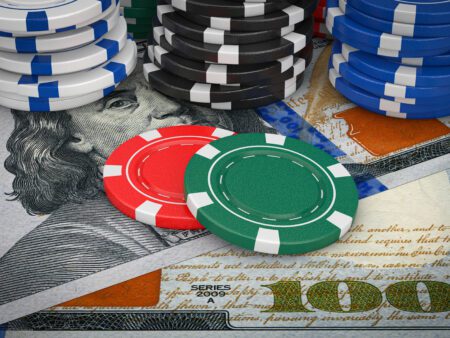Discover the science behind gambling and learn how luck and skill play a role in determining success. Increase your chances of winning with strategic insights.
Luck vs. Skill: The Science of Gambling
The Not-So-Secret Formula for Success in Gambling
When it comes to gambling, there has always been a debate about whether it’s all about luck or if skill plays a significant role. Whether you’re a novice or a seasoned player, understanding the science behind gambling can help you make better decisions and increase your chances of winning.
Luck: The Unpredictable Element
There’s no denying that luck plays a crucial role in gambling. It’s what keeps players coming back for more, hoping to hit that life-changing jackpot. However, luck alone is not enough to ensure consistent success.
Games of pure chance, like slot machines, are heavily reliant on luck. The outcome is determined by a random number generator (RNG), making it impossible to predict or influence the result. Winning in these games is purely a matter of luck, and no strategy can change that.
The Role of Skill in Gambling
On the other hand, there are games where skill can significantly impact the outcome. Poker, blackjack, and sports betting are examples of games where skillful play can improve your odds.
In poker and blackjack, players have the ability to make decisions that affect the game’s outcome. Understanding the rules, probabilities, and using strategies can give you an advantage over other players and increase your chances of winning. It’s not just about luck; it’s about making skillful decisions based on the information available.
Sports betting, while still unpredictable to some extent, relies heavily on skill. Analyzing statistics, following trends, and understanding the nuances of the game can give you an edge over bookmakers and other bettors. This requires research, knowledge, and a disciplined approach.
The Science Behind Winning
When examining the science of gambling, two key factors come into play: probabilities and psychology.
Probabilities:
Every casino game has its own set of probabilities. Understanding the odds and probabilities in different games allows you to make informed decisions. By calculating the expected value and considering the risks, you can choose games that offer better chances of winning.
For example, in roulette, understanding the odds of each bet and the house edge can help you make smarter wagers. The same goes for poker, where knowing the odds of completing a winning hand and assessing the pot odds can guide your decision-making process.
Psychology:
Gambling psychology plays a crucial role in both luck-based and skill-based games. Emotions, such as greed and fear, can cloud your judgment and lead to poor decision-making.
Staying calm and rational, managing your bankroll, and knowing when to walk away are all aspects of gambling psychology that can enhance your overall performance. Being aware of cognitive biases, like the gambler’s fallacy or the illusion of control, can help you make more objective decisions.
Seeking the Balance
So, is it luck or skill that determines success in gambling? The truth is, it’s a combination of both. While luck is often the determining factor in a single game or session, skill and knowledge play a crucial role in the long run.
To maximize your chances of winning, it’s important to learn the ins and outs of the games you play. Study the rules, understand the probabilities, and practice your skills. Developing a sound strategy and managing your bankroll effectively will give you an edge over other players and increase your chances of long-term success.
The Final Bet
Gambling is a fascinating mix of luck and skill. While luck can bring short-term wins, skill is the key to long-term profitability. By understanding the science behind gambling, you can approach your favorite games with confidence and make smarter decisions.
Remember, however, that gambling should always be approached responsibly. Set limits, gamble with money you can afford to lose, and most importantly, enjoy the experience. Good luck!










